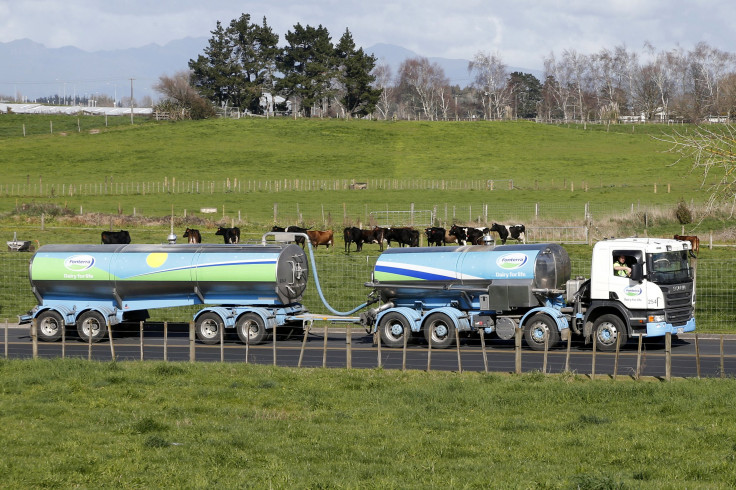'Eco-Terrorist' Threat To Poison Baby Formula In New Zealand Over 1080 Pesticide Use

New Zealand received an “eco-terrorist” threat Tuesday from suspected environmental activists, claiming that they would poison the country's infant formula and other formula in an attempt to stop the use of an agricultural poison in pest control. The threat letters, reported by Prime Minister John Key, were accompanied with poisoned baby formula packages and were sent anonymously to the Federated Farmers of New Zealand and dairy company Fonterra in November 2014.
"Whilst there is a possibility that this threat is a hoax, we must treat the threat seriously and a priority investigation is underway," Police Deputy Commissioner Mike Clement told Agence France-Presse. The letter denounced the agriculture industry’s use of the toxic pesticide sodium fluoroacetate, also known as 1080, for pest control, and carried a threat to poison the formula unless New Zealand stopped using the pesticide by the end of March.
The incident was made public at a press conference on Tuesday. Key said the government had intended to go public next week, but media inquiries had forced him to reveal the details. There was also reportedly a threat to create a publicity campaign praising the blackmailer’s actions.
Key added that 1080 achieves two important aims -- containment of tuberculosis and protection of native birds -- and that New Zealand would not stop using it.
'If you start negotiations with eco-terrorists that's a technique people will use for any particular issue they don't like about the Government," he said at the press conference.
"There is no question these people are a form of terrorist, they're just using the supply chain to try and blackmail the Government into a certain outcome they think is right."
Police said that the letter was likely a hoax, but added that they were taking the matter seriously. Minister for Primary Industries Nathan Guy said that the authorities had conducted 40,000 tests on baby formula products and did not find any traces of 1080, the New Zealand Herald reported. Guy said that none of the 80 markets buying formula products from New Zealand had canceled their orders after the threat came to light, Radio New Zealand reported.
Authorities said they had opened an Auckland-based investigation team, which was actively pursuing the case, and called upon the public to help investigators as much as they could.
"You might be aware of someone who has strong views on the 1080 issue and made threats, or has discussed how to access supplies of 1080,” Clement said, according to the New Zealand Herald. He also called upon the letter writer to come forward and confess.
"The letter writer may not have really considered the implications of their actions when this communication was drafted. Now is the time to put this right by picking up the phone and calling us."
Federated Farmers’ President William Rolleston reportedly said that the association was seriously concerned by the letter. "But I am confident from what I've seen that our regulatory authorities and processors have created formidable barriers to any such threat being carried out,” he said, calling the security of the country's dairy processing “first class.”
New Zealand uses about 80% of the world’s supply of 1080, which is solely manufactured by a company in Alabama. The use of the poison has been controversial, and is opposed by animal rights activists, but enjoys support from farmers and conservationists who say it helps to protect local wildlife from invasive species.
© Copyright IBTimes 2024. All rights reserved.











